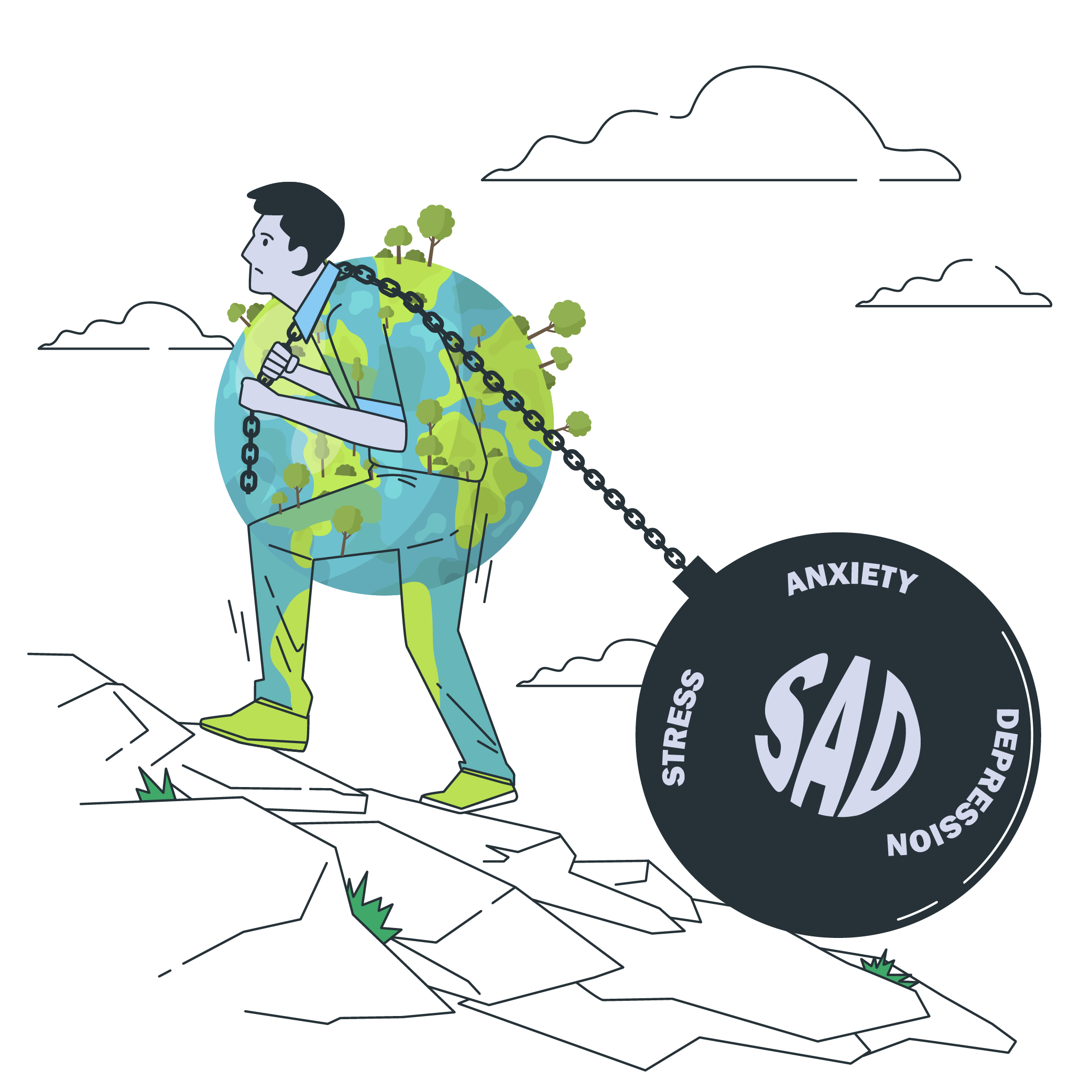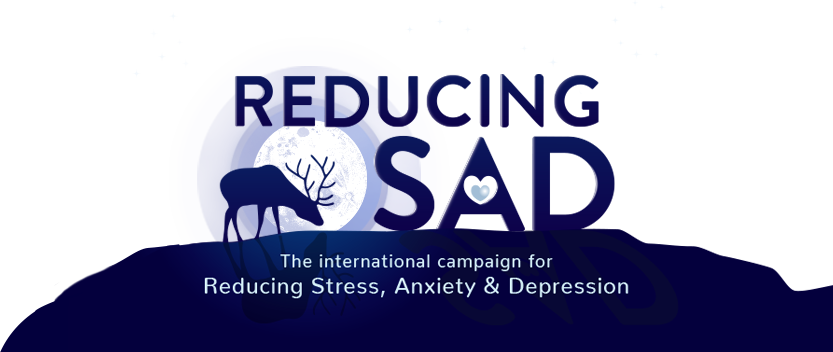SAD is a big problem
It only takes a quick search of the internet to find data from various health monitoring organisations showing that clinically diagnosed stress, anxiety and depression are on the rise. This is, however, something that we, the people behind ReducingSAD, look at closely. It’s something that hugely concerns us.
SAD is a local problem that impacts individuals, families, communities, schools, and companies. It is also a global problem that affects people all over the world affecting the health and wealth of nations.

Stress, anxiety and depression can worsen physical as well as emotional health. They can even shorten lives.
Sadly, so many people are in need of help for SAD that not enough therapeutic support is available – increasingly so.
Therapy is also costly – either to the individual, health insurers or the state. It can be difficult to access.
For those who do manage to get therapy, it is time-consuming and, as it is usually accessed after a long wait or as a last resort, in some cases treatment can be complex and lengthy. Sometimes, the wait is too long.
Tragically, the repercussions are either lives of persistent misery or, heartbreakingly, lives cut short. Suicide remains one of leading causes of death worldwide.
That more SAD is being reported amongst young people is a clear indicator of a global mental health crisis.
It has never been more evident that how we approach SAD requires new thinking. The old adage that prevention is better than cure has rarely been truer. That is why ReducingSAD is campaigning for a preventative approach to SAD.
You can read about our reasons here.
If you’d like to know more about SAD, visit our sister website: WhatIsSAD.com
